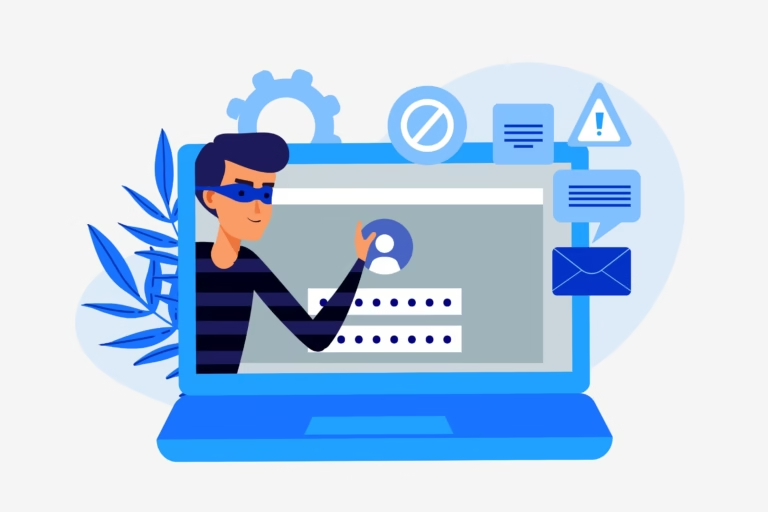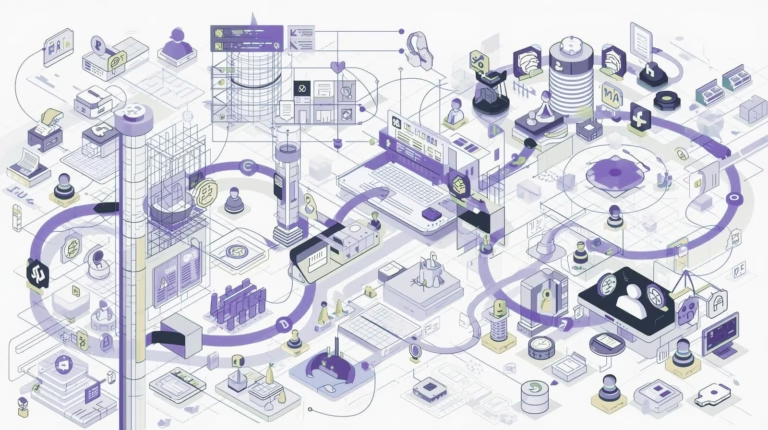Understanding the Importance of VAPT for Web Application Security

Vulnerability Assessment and Penetration Testing (VAPT) is a critical component of web application security. It helps organizations identify and address security vulnerabilities in their web applications before they can be exploited by attackers.
1. Identify security vulnerabilities:
VAPT helps organizations identify vulnerabilities in their web applications, such as misconfigurations, coding errors, and design flaws, that could be exploited by attackers to compromise the security of the application.
2. Prevent security breaches:
By identifying and addressing vulnerabilities in web applications, organizations can prevent security breaches that could lead to unauthorized access, data breaches, or service disruptions.
3. Compliance with regulations:
Many industries have regulations and compliance requirements that mandate regular security testing of web applications. VAPT helps organizations ensure compliance with these regulations and avoid potential fines and penalties.
4. Protect sensitive data:
Web applications often handle sensitive data, such as customer information, payment details, and business-critical data. VAPT helps protect this sensitive data by identifying and addressing security vulnerabilities that could lead to data breaches.
5. Maintain customer trust:
Security breaches can damage a company’s reputation and erode customer trust. By investing in VAPT, organizations can demonstrate their commitment to protecting customer data and maintaining a secure web environment.
The Importance of Regular VAPT for Businesses

Vulnerability Assessment and Penetration Testing (VAPT) is a crucial component of a company’s cybersecurity strategy. It involves assessing the security of a company’s network, systems, and applications to identify vulnerabilities that can be exploited by attackers. By conducting regular VAPT tests, businesses can proactively identify and address security weaknesses before they can be exploited by malicious actors.
Regular VAPT helps businesses stay ahead of the constantly evolving threat landscape. Cyber threats are constantly evolving, and new vulnerabilities are discovered every day. Regular VAPT tests can help businesses identify and address these vulnerabilities in a timely manner, reducing the likelihood of a successful cyber attack.
Furthermore, regular VAPT tests can help businesses meet compliance requirements. Many industries have strict regulatory requirements for data security, and regular VAPT tests are often a requirement for compliance. By conducting regular VAPT tests, businesses can ensure that they are meeting their regulatory obligations and protecting sensitive data.
Overall, regular VAPT is essential for businesses to protect their assets, data, and reputation. By proactively identifying and addressing security vulnerabilities, businesses can reduce the risk of a data breach or cyber attack and safeguard their critical information. Investing in regular VAPT is a crucial step in maintaining a strong cybersecurity posture and protecting business operations.
Key Reasons Why Businesses Need to Perform VAPT

1. Identify Vulnerabilities:
VAPT helps businesses identify vulnerabilities in their systems, networks, and applications before cybercriminals can exploit them. This allows businesses to fix these vulnerabilities before they can be used for malicious purposes.
2. Protect Against Cyber Attacks:
Performing VAPT can help businesses protect themselves against potential cyber attacks. By identifying and fixing vulnerabilities, businesses can significantly reduce the risk of a security breach.
3. Compliance Requirements:
Many industries have specific regulatory requirements that mandate regular security assessments, such as the Payment Card Industry Data Security Standard (PCI DSS) and the Health Insurance Portability and Accountability Act (HIPAA). VAPT helps businesses ensure they are compliant with these regulations.
4. Safeguard Customer Data:
Businesses that collect and store customer data have a responsibility to protect it from cyber threats. VAPT helps businesses safeguard sensitive customer information and maintain their reputation as a trustworthy organization.
5. Improve Security Posture:
Regular VAPT assessments can help businesses improve their overall security posture by identifying weaknesses and implementing security best practices. This can help prevent security breaches and minimize the impact of any potential attacks.
6. Increase Trust and Confidence:
Customers, partners, and stakeholders are more likely to trust and do business with organizations that prioritize cybersecurity. By performing VAPT, businesses can demonstrate their commitment to protecting sensitive information and building trust with their stakeholders.
7. Cost-Effectiveness:
Investing in proactive security measures like VAPT can ultimately save businesses money in the long run. The cost of a security breach, including potential fines, legal fees, and damage to reputation, can far outweigh the cost of regular security assessments.
8. Competitive Advantage:
In today’s digital world, cybersecurity is a critical factor in gaining a competitive advantage. Businesses that prioritize security and demonstrate their commitment to protecting data are more likely to attract customers and partners who prioritize data privacy and security.
Benefits of Implementing VAPT for Web Applications

1. Identify Vulnerabilities:
Vulnerability Assessment and Penetration Testing (VAPT) helps to identify potential weaknesses in the web application that could be exploited by attackers.
2. Enhanced Security:
By identifying and addressing vulnerabilities, VAPT helps to enhance the overall security of the web application, making it more difficult for attackers to compromise.
3. Compliance Requirements:
Many industries have compliance requirements that mandate regular security testing for web applications. Implementing VAPT helps to ensure that the web application meets these requirements.
4. Protection of Sensitive Data:
Web applications often handle sensitive data such as personal information and financial details. VAPT helps to protect this data from unauthorized access or theft.
5. Prevention of Downtime:
Security breaches can lead to significant downtime for a web application, resulting in lost revenue and damage to the organization’s reputation. VAPT helps to prevent such incidents by identifying and addressing vulnerabilities proactively.
6. Cost Savings:
While implementing VAPT may incur initial costs, it can help to save money in the long run by preventing security breaches that could result in financial losses and damages.
7. Continuous Improvement:
VAPT is an ongoing process that can help organizations to continuously improve the security of their web applications by identifying and addressing new vulnerabilities as they arise.
8. Increased Customer Trust:
By demonstrating a commitment to security through VAPT, organizations can enhance customer trust and confidence in their web applications.
9. Competitive Advantage:
Investing in security measures such as VAPT can help organizations to stand out from competitors and attract customers who prioritize security in their decision-making.
10. Peace of Mind:
Implementing VAPT for web applications can provide peace of mind to organizations and their stakeholders, knowing that they are taking proactive steps to protect their assets and data from cyber threats.











